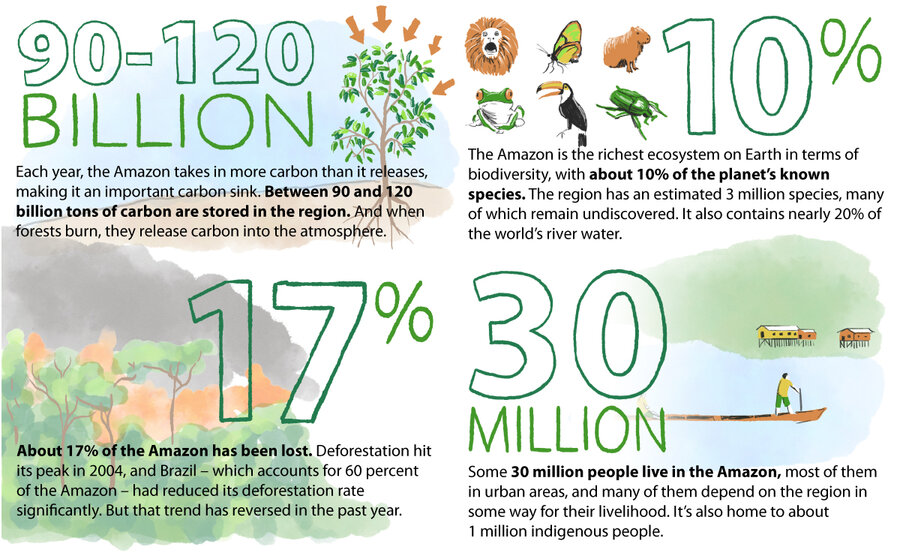Inside the Amazon, a wealth of services for the whole planet
Loading...
It’s been called the world’s most important ecosystem. The Amazon rainforest covers 3 million square miles and includes nearly 20% of the world’s river water. And even a tiny section of the Amazon is a miracle of evolution and abundance. Thousands of different plant and animal species can be found in a single acre, all perfectly adapted for a specific niche.
Currently, a significant chunk of that ecosystem is burning. Satellites have detected more than 40,000 fires in the Amazon since January, about a 35% increase over the average seen in the past eight years. There have been worse years for both fires and deforestation, especially in the early 2000s. But “what’s so unfortunate about this year is that it basically reverses the favorable trend of a number of years,” says Thomas Lovejoy, an environmental science professor at George Mason University in Fairfax, Virginia, who has conducted long-running research projects in the Brazilian Amazon. “And it’s all driven by government rhetoric.”
As global alarm has risen in recent weeks, some of the claims have been overstated – no, the Amazon does not produce 20% of the Earth’s oxygen. But this vital ecosystem provides a wealth of services for the whole planet, as a repository of biodiversity, as a carbon sink, as a driver of climate. Its destruction, Dr. Lovejoy insists, should concern everyone, no matter where they live.
Many scientists fear the forest could be near a “tipping point,” and losing much more will cause it to shift from rainforest to savanna, a transition that could have sweeping effects beyond the region. “A significant portion of the world’s biological diversity is in those forests,” says Dr. Lovejoy. “And the last thing the world needs right now is additional carbon going into the atmosphere.”
Why We Wrote This
It can be easy to shrug off destruction of distant lands as someone else’s problem. But when it comes to the Amazon rainforest, such loss has profound global implications.









